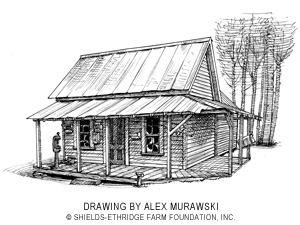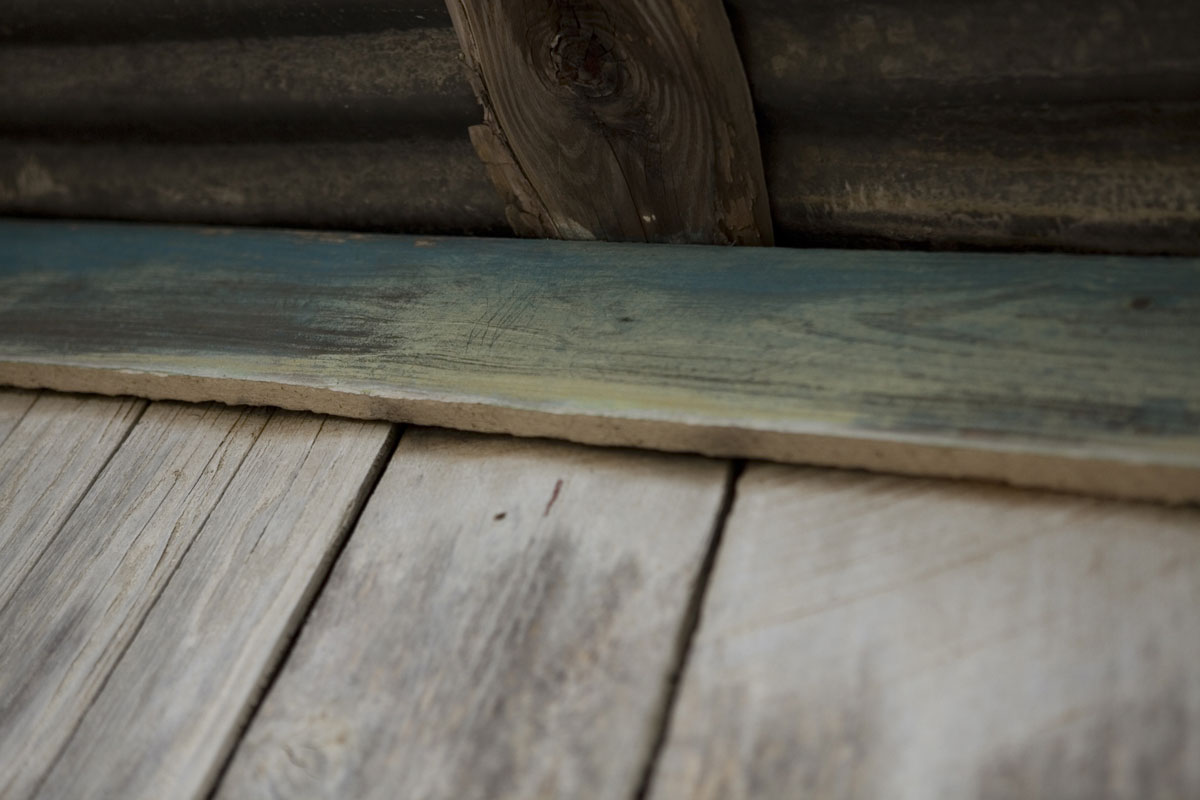 Tenants from this farm and neighboring farms came here to purchase a wide range of household supplies – many no doubt relying on credit advanced by Mr. Ira – so its crossroads location near to the main house was ideal.
Tenants from this farm and neighboring farms came here to purchase a wide range of household supplies – many no doubt relying on credit advanced by Mr. Ira – so its crossroads location near to the main house was ideal.
In its heyday, this commissary and especially its front porch would have been a gathering place for families on the farm after working hours.
The building was constructed in two parts; the back half is the older and it must have proved too small. The interior is remarkable for its completeness, with its long counters, glass cases, and well-stocked floor-to-ceiling shelves. An old kerosene pump still stands on the front porch.
The clapboard siding on this wooden frame building still retains traces of whitewash – a reminder that Mr. Ira named his place ‘White City Farm’ and whitewashed many, if not all his buildings.
This building once stood about 30 feet closer to the main house but was moved back towards the Blacksmith’s Shop when Ethridge Road was realigned in the 1950s. The side facing the Blacksmith’s now has a picturesque display of rusting bits of farm equipment.
